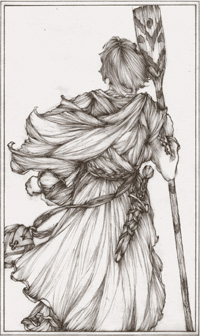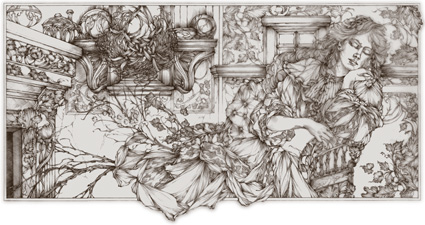We hope you enjoy this reprint of a story by Ellen Kushner set in the world of her classic Swordspoint and originally published by Temporary Culture as a limited edition chapbook earlier this year. This appearance of the story features two Tom Canty illustrations not found in the chapbook; you can click on each of the illustrations for a closer look.
*
Her father had told her a story about a sailor who fell out of love with the sea, so he put his oar up on his shoulder and walked inland far and far, until he finally met someone who looked at the oar and said, “What’s that thing you’re carrying, friend?” and there he stayed. Her father told her he had done much the same thing himself: crossed from the mainland to the island, and then walked inland through the hills and forests until he found a place where no one could read a book, and settled there with his little daughter. He gave the villagers what he could in the way of physick, and taught Sofia to read and to do the same. Her father was gone, now, and here she was, alone with them all, with her goats and her garden at the edge of a village full of people who had never read a book.
And so she remained, not getting any younger, until the man with the knives appeared.
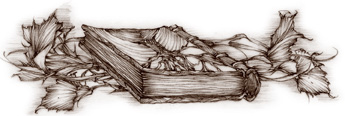
He was going to die here, he was going to cough up his lungs and shiver away to nothingness in a place where no one knew his name. When he fled the house by the sea he had taken his rings with him. They told the story of who he was, but here they were a book no one could read. He kept them in a pouch inside his shirt, along with his surgical knives and two books on anatomy, plus a hunk of dry cheese he was too weak to chew. He was going to die here in the forest of someone else’s land, like an old crow or an abandoned dog. Then he saw the light and thought, “Under a roof, at least.”
![]()
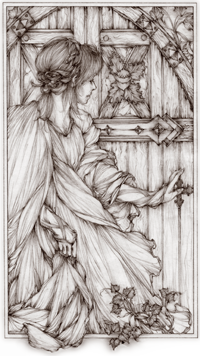 The man on the doorstep could barely breathe, let alone talk. She was used to sick villagers turning up at odd hours, but this one she didn’t recognize. He was not young. His face was grey, and he was soaked and shivering. He couldn’t hurt her.
The man on the doorstep could barely breathe, let alone talk. She was used to sick villagers turning up at odd hours, but this one she didn’t recognize. He was not young. His face was grey, and he was soaked and shivering. He couldn’t hurt her.
“Come in,” she said.
For a moment he took his hands away from his mouth and his chest, held them open to her in an odd gesture that seemed to say, “I have nothing.” Then he doubled over onto his knees, hacking and gasping for breath. She practically dragged him to the fire, where water was always boiling. “Take your clothes off,” she said, and he laughed, pounding his chest for air. She handed him a dry blanket and turned pointedly away from him, rummaging for syrups and compounds. What she gave him to drink made him fall asleep right there by the hearth, clutching her old gray wool blanket, the one Eudoxa had given her for saving her baby, who was now a mother herself.

He was in the earth he was in the earth someone was trying to bury him and pouring earth strange earth into his lungs he couldn’t breathe and Shhh, said the sea washing over him, Shushh, it’s all right, sleep now…. It was only sleep, not death.
![]()
She touched his head. His hair grew thick , but was all patchy and uneven on his head. She checked to see if he had mange, but that wasn’t it. Someone had cut chunks of it off, with a knife, maybe?
![]()
They brought his lover up from the sea, from the rocks under their window. He had heard nothing, would never know if he had cried out as he slipped from the rocks. The sea roared too loudly there. It had been their bedtime music for years, the sea at night, and by day, the bees in the wild red thyme in the mountains above the house.
They told him, He’s dead, lord, and he said, No, never. He is not friend to death. Death fears him. They told him he could look, and he moved through the colonnaded porch and suddenly Marina, the housekeeper, stood in the way saying, Lord, don’t look, but he looked past her and saw, no blood, no blood no blood, just something very very broken, and no blood at all so he took the nearest sharp thing and ran it down his arm, and they bound his arm saying it was too much, too much too soon, time enough for that at the burial and he started shouting, What? What? Are you insane? but he was using the wrong words; their faces showed they did not understand him.

Usually she touched her patients only enough to diagnose and treat them, leaving the nursing to the women of the family. But here, alone, she was all there was. And so she bathed his body, like a mother, or a wife. He was modest; he’d tried to stop her. But he stank, and she wasn’t having that. She told him he’d like being clean, and she put wild red thyme in the hot water for him, to help clear his chest. He wept as the scent rose.
![]()
Everyone let out their few drops of blood, and clipped a bit of hair to lay on—to lay on the— He’d let his blood already; he took the knife and hacked at his hair, the hair that had lain across his lover’s breast, tangled in his hands and covered his eyes—
“Do you like it?” he’d asked, when they came in sight of the island for the very first time.
“I can see colors, some. It’s beautiful.”

“Where do you come from?” she asked the sleeping man, who coughed as he slept. To her alarm, he turned his head to her, opened his eyes, and said clearly: “I have knives.” But that was all; he’d been dreaming her and her question. His eyes closed again, his head turned away.
![]()
The knives were not to sever him from his past, or even to separate him from other people They were to go deeper, see more, know more. He didn’t want to hurt anyone, not even himself, anymore. Not here. Not on an island where honey ran sweet in the comb, where the bees sang one kind of song in sweet-smelling thyme, and the sea sang another against black rocks below the white house they made together, a long porch to shade them from the sun, and windows open at night for the crash and hiss of the waves, to remind them that they were on an island, that it would take a ship with sails to find them, or to take them away.

It was strange to find she did not ask his name. She thought he would not willingly give it to her. Maybe she simply didn’t need it, since there were only two of them, alone there in her house away from the village. It was a quiet month, with no babies born, no sudden fevers or falls from rocks. After his storm, the weather was benign.
![]()
If he could have torn out his own eyes to stop the visions coming, he would have done it. But he saw more sharply with his eyes closed: his lover under the earth, in it, part of it, defenseless and undefended. With nothing else to see, that’s what he saw.
![]()
She saw: The day he breathed most deeply. The night he slept without waking. The night he slept without screaming. The morning he hauled himself up onto his feet, the blanket wrapped around himself, and silently took the bucket from her hand. The night he moved his bedding out to the shed, by the goats. The day he found the soup was burning, and cleaned out the pot, and made soup fresh.
No one else knew that she actually burned soup, though she was sure they all suspected it.
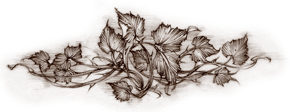
He staggered away from the place where the vision was the sharpest, stumbling over rocks, through the brush that grew along the sea and away from it, up into hills with forests where no one would find him, through villages where no one knew his name. He ate what they gave him. His useless body he gave to the wind and the rain. But they spat it back at him. And so he took it along to the next farmstead, the next village, where people asked who he was and what he wanted, and he had no words for them.

The night she touched his chest, to see if the lungs were clear, and touched his brow to see if the fever was gone, and touched his throat to see if the breath was strong.
![]()
It had been night. Night, and the wind. He had not heard his lover leave the bed, had not even felt his weight shift away. His lover often went for walks at night; it was not much darker to him than day. He liked to fight the wind along the cliffs above the waves.

The night she touched his brow to see if the skin was cool, and touched his lips to see if he felt her there, and touched his face to see how he held her gaze.
![]()
The waves stopped roaring when she touched him. The world grew very small. There was nothing inside him but what she was looking for.
When she gazed at him, she saw no one he knew.

Already she knew his body well, and so she was not astonished, when she lay in his arms at last, at the whiteness of his skin where the sun had never been. She was barely astonished to be there at all; it was as if his body had been calling her from the start, glowing like candleflame even beneath his rags, and she the moth drawn to the heat of his skin, his white, fine-grained skin, his long and supple hands, his sharp and delicate bones, his harsh and fallen face with its green eyes, a green like nothing else she’d ever seen in a living being.
![]()
He let her explore him, let her discover herself through him. It was as if she was reading a book, soaking up learning , following letters with her finger, spelling out new words with her mouth.

She said, “What is your name?”
He was silent. He didn’t want to hear those sounds again.
“Your name?” she asked gently, again. “Can you tell me?”
He shook his head.
“What shall I call you, then?”
He made the sound “Camp-ee-un.”
“Campione? Is that good?”
He laughed and shook his head again. “No. Not good. Me.”
“My name is Sofia.”
“So-fya.”
“Yes. I’m a physician. I can read. Can you read, Campione?”
“Yes. I have reading things.”
“Reading things? You mean, you have read things?”
“No, no!” Again the shaking of the head, and this time he used his hands as well, spreading the fingers as if he’d dropped something he couldn’t find. “Reading—to read—small-from-trees—what word?”
“’Small-from-trees’—do you mean books? You have books to read?”
He nodded. “I show you.” So that was what was in the bundle tied up with rags, the bundle he brought that she had left alone, partly to honor his privacy, and partly, though she hated to admit it, because it was so disgusting. Inside was cleaner cloth, and then . . . the books.
Anatomy. Drawings of the insides of people—truths she’d glimpsed the ragged, colorful facts of more than once as she worked to save someone, but here they were, laid out in black and white like a map. Dispassionate and true. And also in black and white, patterned unrecognizable, were letters making words she did not know. His language, his words.
She could barely speak. “Who made these? Where did you get them?”
He shook his head.
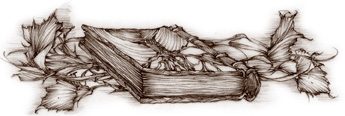
She spoke. He listened. He found words at need.When he was alone, he thought only in the words that she would understand. To look, to feel, needed no words. What she wanted, and what she gave. What he could give her now.

“I am not young,” he would murmur regretfully into her hair. His language was broken, oddly accented and missing words, but that phrase he knew. “Sorry. I am not beautiful now.”
She wanted to tell him men were not supposed to be beautiful, but “You are to me,” she’d say, speaking the truth.
He spread his hands open, lacking the words to argue, just laughing ruefully, as though that were refutation enough.
“You see me,” she explained doggedly, wanting to convince him. “And I see you.”
He stiffened against her embrace, as though she’d angered or insulted him; but she waited, and he relaxed again, melting against her bones.
“You not know me,” he muttered.
“True. It’s funny that you make me happy.”
“Funny laughing?”
“No.” She chuckled. “Well, a little. Funny—“ She tickled him, and delighted to feel him squirm like a child—“Funny like strange.”
“I am stranger.”
“Yes,” she said; “you are that.”
![]()
He knew that she had brought him back to life. When he felt the sun on his arms, when he smelt sage and lavender and rosemary as he turned the earth in her garden, when he smiled because she called to him across the yard, he knew he owed her everything. She remade the world.
![]()
When he gave her joy, sometimes in his own release he’d howl like a woman in childbirth. She had witnessed that sort of pain enough that it scared her. But she learned that it was over a moment later. Herself, in joy, she sang: long, loud summer and midwinter carols she hadn’t known her throat was capable of.
“Why don’t you sing?” she asked him bravely once, her face buried in the fold between his armpit and his chest. It took him a long time to understand her—and then he answered, “Most men don’t.”
Once, though, he shouted out a word—screamed it, pleading with his body and the night before he fell down onto her, dense and heavy as clay. She tried to hold him, but he rolled away from her, shielding himself with palms outturned, warding off something only he could see.
She said, “My love?” and he gasped, “Yes, words—words to me, please—” and, baffled, she started to sing, a silly children’s song about a goat on a hillside. He drew in deep breaths, asked her a question about what a line meant, and was himself again.
The word he’d kept shouting out was his own language. Was it a name, perhaps? As sometimes she cried out his in her pleasure?
The next day, while she swept out the cottage and pounded herbs into paste at her workbench, she thought about the fact that there had been others. Others before her. Did she mind that she was not his first love, though he was hers? Did she care? She cared a little, she decided. She did not like to think of him loving someone else. But it was entirely unreasonable to mind.
![]()
“My hair, so white—“
“I like it. Was it darker once?”
“Yes. More darker, yes. Old, now. Bad.”
“You are not bad. The goats like you. You take very good care of them.”
“Goats . . . .”
“Say it. Say, ‘I am good.’”
“I am goat.”
“No, good.”
“You. Are. Good.”

It couldn’t last, and she knew it couldn’t last. It was her life, after all, to be woken at all hours, to be summoned urgently to human horrors and discomforts; even he couldn’t change that. When the knocking and shouting outside the door began, smashing their bubble of dark and cozy sleep, she rolled over, untangled and pushed him away, fumbling for her nightgown and a blanket to go to the door.
“Come quick!” Markos, his face flushed in the lantern light. “Oh come quick, please come, we’ve found him—“
She hadn’t even known a man was missing. No one had told her, or asked her to join the search.
Sofia dressed in a blur, by the light of a lamp her lover must have lit. She found her bag of bandages and salves by rote, and was out the door with Markos. A second man came behind them, the tall stranger. He followed them to a house, where old Stephan was laid out on the floor, moaning like the wind.
Sofia knelt. They brought her light. They kept trying to tell her what had happened. She shut out the sounds and only looked and felt. It was the leg, the left leg. Around the knee was horribly swollen. Broken? Stephan shouted when she tried to move it.
Sofia closed her eyes. Behind them she saw, clear and black and white, the diagram in Campione’s books. The knee, and the threads that connected the joints under the muscles. And then she knew.
When it was finished, the last bandage neatly tied, and Stephan nearly drowned in wine and snoring happily, dawn was breaking. By the grey light she saw Campione accepting a cup of hot tea. But he didn’t drink it; he gave it to her. The whole house watched while she drank it, and then the women kissed her and rubbed her hands with cloths dipped in lemon water.
“Who’s this, then?” Old Marya nodded at the tall stranger.
“My servant,” Sofia said quickly, before she could think. “He helps me with my goats. And carries my things. He came to me in the rains, looking for work.” Was she talking too much? “He sleeps in the goatshed. I let him sleep there.”
“Is he mute?”
“Sometimes,” Campione answered.
Marya laughed, displaying all that was left of her teeth. “You should mend the healer’s roof. Just stand on a goat; you’re tall enough you don’t even need a ladder!”
Campione smiled thinly and ducked his head. Sofia could tell he’d barely understood one word.
![]()
The language was a mask that he put on, like those masks they had for the crazy torchlit parties on the streets of his old city, hiding his true face. Weirdly, masks transformed not only faces. When they tied theirs on, his graceful friends became tottering old men or prancing beasts, mincing maidens or loping fools. The mask went deep.
Not deep enough.He wanted true transformation: to lose the memory of torches, friends and streets—to forget there ever was a mask at all. To become the thing he mimed. To lose what he had been.

“When I was a girl, after my father died, I found a bird dead in the wood. I opened it with my knife, then and there, to see what was inside.”
“Yes?”
“I’ve never told anyone this.”
“Tell me.”
![]()
She did know other stories. The one about the girl whose lover came to her every night, strong and lovely in the dark. Her sisters scared her into burning him with light—and then began the girl’s sorrows, and her wanderings.
The girl in that story was a young thing, though, with friends and family she thought that she could trust. Sofia was a woman, and kept her own counsel.
![]()
The villagers asked him, How are you? and he said: Well. They asked him, Where is your lady? and he said: Garden.
They asked him, Where do you come from? and he said: I don’t understand.

“Where do you come from?”
It trembled on her tongue a hundred times a day, but she never let it take shape in the air between them, even in the dark when her tongue was velvet night on the star-spangled sky of his skin. Instead she said, “I am happy. I am so happy with you. I never thought I could be happy like this.”
He didn’t really have the words to argue, and finally he stopped trying.
![]()
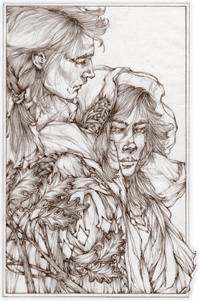 On the other side of the world, on the other side of sleep, was a city he had loved with his whole heart. There came a time when his shadow began to stretch across it more and more, taking up too much room, until it wasn’t his city anymore. His city was one where he and his lover lurked, notorious and indecipherable.
On the other side of the world, on the other side of sleep, was a city he had loved with his whole heart. There came a time when his shadow began to stretch across it more and more, taking up too much room, until it wasn’t his city anymore. His city was one where he and his lover lurked, notorious and indecipherable.
They’d needed a place where they could be unknown again, the peerless swordsman and the mad aristocrat. A place that didn’t need them, didn’t care how they had held men’s lives in their hand; the swordsman, flawed, turned recluse, the nobleman, overreaching, turned rogue. They needed a place where they could matter only to each other. An island, with a house above the sea.
It had been sweet, so sweet. He thought he’d gotten it right, this time. He thought they could be happy, alone. Hadn’t they both been happy? Hadn’t they?
They brought him up from the sea, no blood no blood. The dead eyes would not look at him.

During the daylight, they were careful not to touch too much. Her cottage was isolated, but not remote. Anyone could come running up at any time—and that is what happened, on a bright, clear afternoon. Sofia was trying to mend a basket with reeds, so that she didn’t have to ask someone in the village to do it for her again, and Campione was indicating they might need to be soaked in water first, when they heard a rustle, and a cry, and it was young Antiope, wailing that her husband had fallen, fallen from a tree nearby, gone high in a tree to pick lemons that she fancied in her condition god help her, while everyone else was picking olives, and now—and now—
His friends brought Illyrian, staggering between them, gasping for air. Sofia got his shirt off, laid him down, felt his ribs. His chest moved in and out as it should – but he was choking. It was something inside him, something she couldn’t feel, something she couldn’t see. Illy’s lips began to turn blue. Unable to breathe, he was drowning on dry land.
Campione was beside her, holding something. A book? Couldn’t he see it was too late for drawings and diagrams? He opened it. It was a case, a case full of exquisite knives.
“Please,” Campione said. “Hold.” He didn’t mean the knives; he meant Illyrian. Sofia took the boy’s shoulders. She watched in horror as Campione drove the little knife between the boy’s ribs.
Antiope screamed and screamed. Campione shoved a reed into the wound, and blood gushed out of it. But before anyone could attack the man, Illyrian breathed. A great whoosh of air into his lungs, and the color returned to his face, while the blood poured out the reed.
Campione shrugged. “Please,” he said again; “hold.”
He meant the reed, this time. Sofia took it from him, careful to keep it in place, watching, fascinated, as the young man breathed steadily and the blood drained out of his chest.
Illy’s young wife covered his face in kisses. Their friends stood a respectful distance from Campione, who took his knife to clean.
![]()
His hands shook, putting the knives away. He had his back to them all; they couldn’t see. They’d think that he had done all this before.

They moved Illyrian into her house to watch all night, watching his breath for when the blood returned, to unstopper the reed and let it out again. A rib had broken inside, and pierced a vein, it seemed. She fed him wine mixed with poppy, and as the dawn came, Illy’s color deepened, rosy, like the sky, his breath quiet as dawn wind, and the bleeding ended.
Campione sewed up the wound his knife had made. She felt sick, sick with love for him and sick with wanting to know all that he knew.
![]()
He’d taken up something new to study, now that he had time. How amusing, here on this island, to be the one who wielded the steel! The little instruments, sharp and precise. You needed sure eyes and a steady hand. He hardly dared to use them, but he read the books and tried. He wasted paper tracing the diagrams, slicing them with a scalpel taken from its velvet case, small and fine as a pen. He modeled chests and legs and stomachs out of wet clay, made his incisions and excisions, grumbling at how hard it was to clean the knives afterwards, while his lover laughed at him:
“You should have let me teach you the sword, back home, after all. It’s so much easier to clean.”

“For your man,” they said now, when they brought her a chicken, or some cheese, or a bottle of red wine. “Be sure you share it with the man with the knives.”
She did not ask to look at the knives again. He never took them out when she was there. But she knew the knives came out when she was gone. He would show her when he was ready, she thought. She could look at his books, and study them, and wait.
He cried, so, in his sleep.
![]()
His lover often went for walks at night; it was not much darker to him than day, and there were fewer people about. He liked to fight the wind.
Night, and the wind. He had not heard him leave the bed, had not felt his weight shift away.
Hadn’t they both been happy? Hadn’t they?

In his sleep, she learned his language from his dreams. She learned the words for No, and Stop. She heard him speak in tones she never heard him use by day, dry and acerbic, like powdered lime without any honey.
![]()
His lover was a swordsman, with nothing to fight now but the wind.
His lover could see nothing in the dark, and not much more by day.
Had he seen where the rocks ended and the night sky began?
Had the wind caught him, challenged him, and won?

She did not mean to spy on him. It was a hot day. She had been weeding; he’d been washing clothes. He’d hung them out all over the big bushes of rosemary and thyme to dry sweetly in the sun, and he’d gone inside her thick-walled house to rest, she thought. After awhile, she went herself, to get out of the heat.
She opened the door, and stopped.
Her love was sitting at her long table, the case of knives open before him.
She watched him pick up each knife in turn, hold it up to the light, and touch himself lightly with it, as if deciding which one should know him more deeply.
She watched him place the tip of one to his arm, and gently press, and watch the blood run down.
“Campione,” she said from the doorway.
He spoke some words she didn’t understand. He cut himself in yet another place.
“Bad?” she asked.
He answered her again in that other tongue. But at least he laid the knife aside as the words came pouring out of him, thick and fast and liquid.
“I understand,” she said; “I understand.”
“You don’t.” He looked at her. “You cannot.”
“You’re hurt,” she said. He shrugged, and ran his thumb over the shallow cuts he’d made, as if to erase them. “No, hurt inside. You see what is not bearable to see. I know.”
“I see it in my mind,” he muttered. “So clear—so clear—clear and bad, I see.”
She came behind him, now, and touched his arms. “Is there no medicine for your grief?”
He folded his face between her breasts, hearing her living heartbeat.
“Can I cure you, Campione?”
And he said, “No.”
“Can I try?” she asked.
And he said, “Try.”
![]()
They brought his lover up from the sea, from the rocks under their window. He hadn’t heard him fall, would never know if he had cried out in surprise, or silently let himself slip from the rocks and into the sea that surrounded them.

The man with the knives married her on midsummer’s day. There were bonfires, and feasting and dancing. He got pretty drunk, and danced with everyone. Everyone seemed happy in her happiness. They jumped over the dying fire, and into their new life together.
And, carefully, he placed the feel of her warm, living flesh over the dread of what he had left, buried, for the earth to touch, on the other side of the island; what he’d left, buried, for the earth to take of what he once had; for the earth to take away the beauty that had been taken away from him by a foot that had slipped, sure as it was always sure, out into the space that would divide them forever.
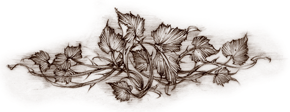
Copyright © 2010 by Ellen Kushner
Originally published in 2010 by Temporary Culture as a limited edition chapbook with original art by Thomas Canty. A few dozen copies are still available for sale.










